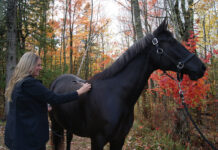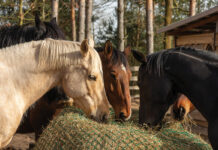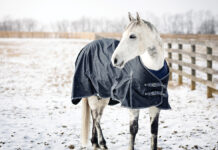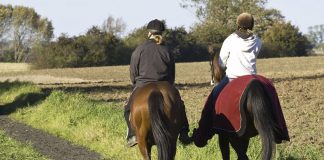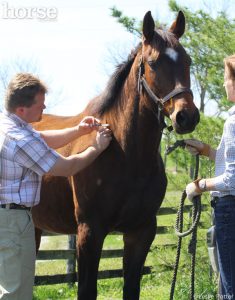
The Infectious Disease Committee of the American Association of Equine Practitioners (AAEP) has issued revised guidelines for the administration of selected core and risk-based vaccines to horses. The recommendations are based on the age of the horse and its previous vaccination history and are meant to serve as a reference for veterinarians.
Among important modifications to the AAEP Vaccination Guidelines for Horses:
◆ The Adult Horse Vaccination and Foal Vaccination charts have been updated to match changes made in various vaccination guidelines and vaccine manufacturer label recommendations. Changes to the foal chart also include updates to the rabies vaccination recommendations for vaccinated vs. unvaccinated mares. Changes to the adult horse chart include updates to the broodmare section to recommend vaccinating those mares pre-partum with a “respiratory EHV” product in addition to the abortion product.
◆ The Anthrax guidelines indicate that the disease can be contracted in an endemic area via vector-borne transmission. Further recommendations have been added for horses during an outbreak (e.g., vaccinate afebrile horses not showing clinical signs).
◆ The EEE and WEE guidelines encourage veterinarians to consult with vaccine manufacturers for their geographic region and to consider the region’s case frequency for the current year and in recent years.
◆ The Equine Influenza guidelines include recommendations for horses that have recovered from natural infection. It also notes that some facilities and competitions may require vaccination within the previous 6 months to enter.
◆ The EVA guidelines indicate that the occasional stallion may shed very low concentrations of vaccine virus in its semen for several days following first-time EVA vaccination and the recommendation to confirm negative status prior to vaccination.
◆ The Leptospirosis guidelines incorporate recommendations for foals as young as 3 months of age and emphasize that the licensed vaccine is safe for pregnant mares at all stages of parturition.
◆ The Rabies guidelines provide guidance for how to approach a horse that has been exposed to a confirmed rabid animal.
The Infectious Disease Committee stresses that veterinarians, through an appropriate veterinarian-client-patient relationship, should use the recommendations, coupled with available products, to determine the best professional care for their patients. Horse owners should consult with a licensed veterinarian before initiating a vaccination program.
“The goal of the guidelines is to provide current information that will enable veterinarians and clients to make thoughtful and educated decisions on vaccinating horses in their care,” explained Infectious Disease Committee Chair Dr. Katie Flynn. “The impact of infectious disease has been felt across the equine industry in recent years, and the committee hopes that these guidelines will be a useful tool in preventing or mitigating the effects of equine infectious disease.”
The committee also emphasizes that routine vaccinations are considered essential during this COVID-19 pandemic, and overdue vaccinations should be completed to help prevent disease in horses. Duration of immunity for some vaccines might be limited to 6 months; therefore, maintaining a routine vaccination schedule is critical for horses at high risk of developing these diseases, and vaccinations should be scheduled as soon as reasonably possible to ensure the health and welfare of the horse. In all cases, veterinarians should consider local conditions and current state-imposed regulations to determine when vaccinations can be completed safely during this unprecedented time.
The committee, comprised of researchers, vaccine manufacturers, regulatory veterinarians and private practitioners, regularly reviews these guidelines and provides updates online, with in-depth reviews occurring every three years. The complete AAEP Vaccination Guidelines, along with easy reference charts, are available online.
About the American Association of Equine Practitioners
The American Association of Equine Practitioners (AAEP), headquartered in Lexington, Ky., was founded in 1954 as a non-profit organization dedicated to the health and welfare of the horse. Currently, AAEP reaches more than five million horse owners through its over 9,000 members worldwide and is actively involved in ethics issues, practice management, research and continuing education in the equine veterinary profession and horse industry. Visit www.aaep.org.

